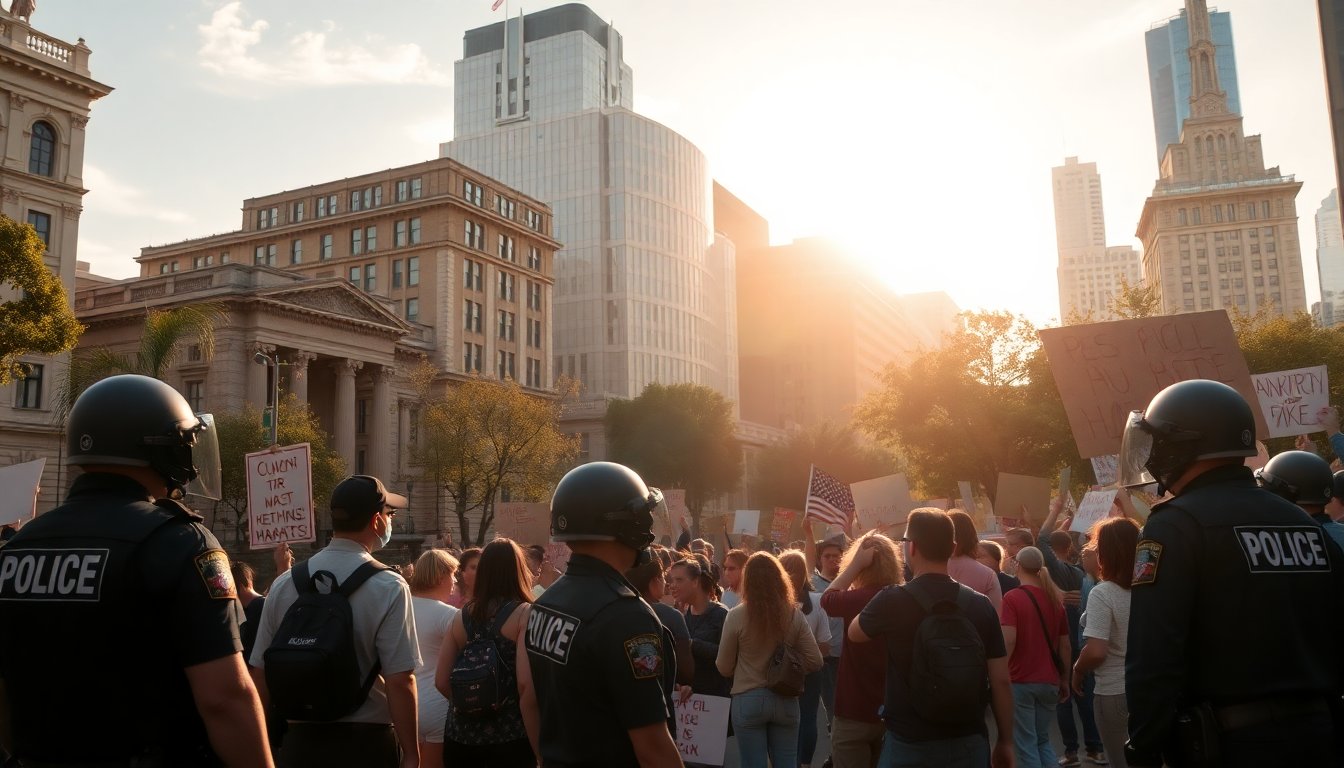Table of Contents
The recent surge in political violence has ignited serious concerns across the United States, prompting a critical examination of the responsibilities of public figures and the implications of their rhetoric. Following the assassination of a prominent figure, reactions from various stakeholders—including educators and political parties—underscore the necessity of analyzing political discourse and its potential consequences.
The Context of Political Violence in America
Political violence is not a novel occurrence in the United States; however, its recent resurgence draws attention to how public statements and social media interactions can foster a culture of hostility. The assassination of political figures often triggers intense debates about the root causes of such violence, leading to accusations among political factions. For instance, the Connecticut Republican Party’s response to a Democratic state education official’s comments regarding Charlie Kirk’s death exemplifies the challenges of navigating political disagreements without resorting to incendiary language.
This reaction from the Connecticut Republican Party condemned remarks made by Farmington Board of Education Chairman Bill Beckert, who reportedly celebrated Kirk’s death through a social media post suggesting that individuals reap what they sow. This scenario illustrates the dangers of interpreting political events through a lens of vindictiveness rather than focusing on constructive dialogue and mutual understanding. The potential for such statements to incite further violence or division cannot be overlooked, especially when they originate from influential individuals.
The Role of Educators and Public Figures
Public figures, particularly those in educational roles, bear a unique responsibility to promote values of civility and respect, especially in politically charged environments. The chairman of the Connecticut Republican Party emphasized this expectation when he criticized Beckert for his apparent lack of restraint and decency in light of tragedy. Educators must model appropriate responses to conflict, as their behavior sets a precedent for students and the wider community.
Moreover, the backlash faced by educators who express controversial opinions on social media raises significant questions about freedom of speech and the boundaries of acceptable discourse. For example, a Florida teacher faced suspension for sharing a post that seemingly celebrated Kirk’s death, prompting an investigation by the Florida Department of Education into the conduct of teachers engaging in such behavior. This situation highlights the delicate balance between individual expression and the responsibilities inherent to public service.
Community Implications and Moving Forward
The implications of political violence extend beyond isolated incidents; they reverberate throughout communities and affect the broader societal fabric. The Connecticut Republican Party has called for a reassessment of community values, urging residents to reflect on the lessons they wish their educational institutions to convey. The dialogue surrounding Kirk’s assassination and the reactions it has provoked present a crucial opportunity for communities to evaluate their values and the importance of cultivating a culture of constructive engagement rather than one of hostility.
As communities confront these challenges, it is essential to prioritize dialogue that fosters understanding and reconciliation. The goal is to create an environment where differing opinions can coexist without devolving into violence or alienation. By emphasizing the importance of respectful discourse and resolving conflicts through democratic means, communities can strive to break the cycle of political violence threatening their cohesion.
In conclusion, the recent events surrounding Charlie Kirk’s assassination and the subsequent reactions highlight the urgent need for a collective commitment to uphold the principles of democracy and civility. Embracing this commitment will require all stakeholders—politicians, educators, and community members—to engage in thoughtful and responsible dialogue, ensuring that the lessons imparted in schools reflect the values of respect and dialogue over conflict.


